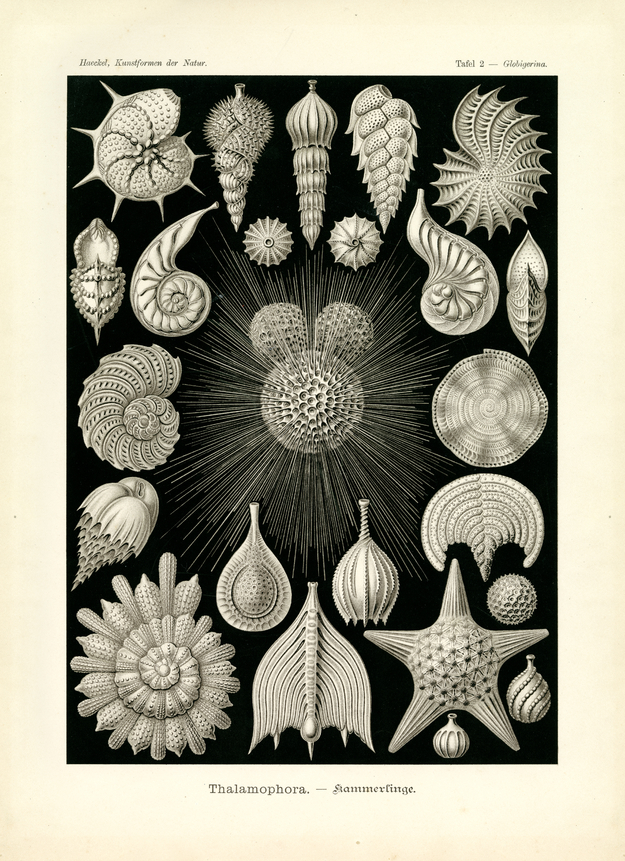Only the lime shells are illustrated here, their coloration varying in numerable shadings, at times white or yellow, at times red or brown. In their early youth all Foraminifera (single-celled organisms with external limestone skeleton) are mono-chambered (Monothalamia, organism with a single-chambered stomach), as it is permanently the case with Lagena (fig. 17-20). The shell usually puts on numerable chambers later on that consistently increase in size and are partially separated by porous diaphragms. Some of these Multi-chambered (Polythalamia, organism with a multi-chambered stomach) reach a considerable size; the larger species of Nummulites for example have the circumference of a Five-Mark coin (more than 50 mm in diameter.
Translation of the original German introduction by Ernst Haeckel:
Phylum of Protozoa; - class of Rhizopoda; Subclass of Thalamophora; - legion of Foraminifera or Perforata.Thalamophora of this plate belong to the Foraminifera, their lime shell being perforated by numerous fine holes like a sieve (visible in fig. 3, 11, 16); delicate, flexible plasma columns emerge through these, emanating from the enclosed unicellular soft body; these plasma columns (Scheinfüßchen) are used for locomotion as well as alimentation.
Translation by VR Translators Bangalore
This is one of the 100 pop science biology illustrations that were published from 1899 – 1904 in Leipzig by Ernst Haeckel through Verlag des Bibliographischen Instituts.
We've scanned the original lithography at 1200dpi on the Epson A3 scanner of A3 scanner huren. You can download a 400dpi JPEG here.
